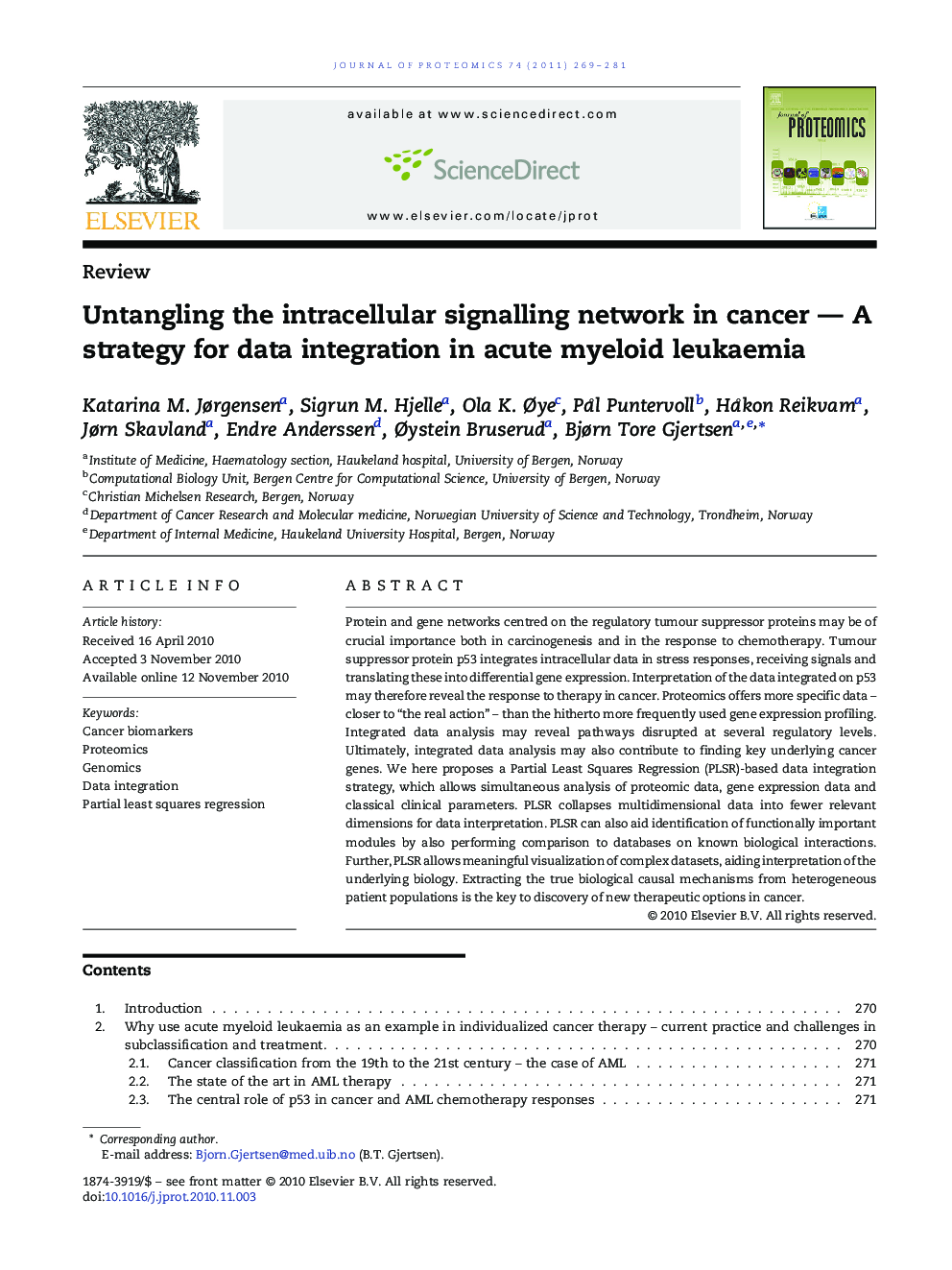| Article ID | Journal | Published Year | Pages | File Type |
|---|---|---|---|---|
| 1226131 | Journal of Proteomics | 2011 | 13 Pages |
Protein and gene networks centred on the regulatory tumour suppressor proteins may be of crucial importance both in carcinogenesis and in the response to chemotherapy. Tumour suppressor protein p53 integrates intracellular data in stress responses, receiving signals and translating these into differential gene expression. Interpretation of the data integrated on p53 may therefore reveal the response to therapy in cancer. Proteomics offers more specific data – closer to “the real action” – than the hitherto more frequently used gene expression profiling. Integrated data analysis may reveal pathways disrupted at several regulatory levels. Ultimately, integrated data analysis may also contribute to finding key underlying cancer genes. We here proposes a Partial Least Squares Regression (PLSR)-based data integration strategy, which allows simultaneous analysis of proteomic data, gene expression data and classical clinical parameters. PLSR collapses multidimensional data into fewer relevant dimensions for data interpretation. PLSR can also aid identification of functionally important modules by also performing comparison to databases on known biological interactions. Further, PLSR allows meaningful visualization of complex datasets, aiding interpretation of the underlying biology. Extracting the true biological causal mechanisms from heterogeneous patient populations is the key to discovery of new therapeutic options in cancer.
Graphical AbstractFigure optionsDownload full-size imageDownload high-quality image (145 K)Download as PowerPoint slide
